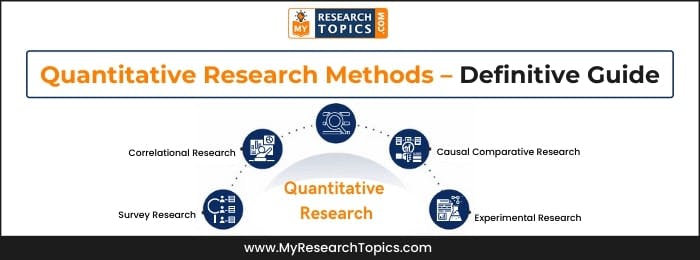Masters vs PhD – Differences Explained
Published 16 October, 2023
Synopsis
A master’s degree is a graduate degree that typically takes two years to complete. A PhD, on the other hand, is a doctorate degree that can take anywhere from four to eight years to complete. Both degrees signify a higher level of education than a bachelor’s degree, but they are not necessarily interchangeable.
Introduction
To pursue a Masters or PhD (or both) after you complete your undergraduate studies is not necessarily an easy decision. Both postgraduate degrees have their benefits but also come with different challenges that need to be considered before making this vital choice for yourself as well as those around you who may influence these choices too.
Let’s get started by looking at each degree in turn, comparing and contrasting their differences.
What Is a Masters Degree?
A Master’s degree is an academic degree awarded by universities or colleges upon completion of a course of study demonstrating a mastery or high-order overview of a specific field of study or area of professional practice.
There are many different types of Master’s degrees, each with its own requirements and areas of focus. For example, there are master’s degrees in business administration (MBA), engineering, education, public health, and information technology, among others.
The most common type of master’s degree is the Master of Arts (MA), which can be earned in a variety of disciplines such as history, communications, English, or foreign languages. Other popular types include the Master of Science (MS) and the Master of Fine Arts (MFA).
To earn a master’s degree, you must complete a minimum of 30-36 credit hours of coursework, which typically takes two years of full-time study. Some programs may require the completion of a thesis or capstone project in addition to coursework.
Benefits of Pursuing Masters Degree
- Mastery of a specific skill or area of knowledge: A masters degree allows students to gain in-depth knowledge and mastery of a particular subject or field. This can give them an edge in the job market, as employers are often looking for employees with specialized skills and knowledge.
- Increased earning potential: A masters degree also often leads to increased earning potential. According to recent data, those with a masters degree earn on average $17,000 more per year than those with only a bachelor’s degree.
- Greater professional opportunities: A masters degree can also lead to greater professional opportunities, including promotions and leadership roles within companies. It can also provide access to higher level jobs that may not be open to those without a masters degree.
- Personal and professional development: Pursuing a masters degree can also lead to personal and professional development. The process of completing a masters degree requires students to develop important skills such as time management, research, and writing. These skills can be beneficial in both their personal and professional lives.
What Is a PhD Degree?
A PhD degree is an advanced, research-focused degree earned by completing a rigorous program of study and demonstrating mastery of a particular field of knowledge. Earning a PhD typically takes years of full-time work, and requires original research that is published in peer-reviewed journals.
A PhD allows you to become an expert in a specific field of study, and can open the door to many exciting career opportunities. Graduates with a PhD are highly sought after by universities, corporations, and government agencies around the world.
To earn a PhD, you must complete a minimum of 60 credit hours of coursework, which typically takes four to eight years of full-time study. In addition to coursework, you must also complete and defend a dissertation, which is a significant piece of original research.
Benefits of Doing a PhD
There are many benefits to doing a PhD, both personally and professionally.
- Develop In-Depth Expertise: Doing a PhD will allow you to develop deep knowledge and expertise in your chosen field. This intimate understanding of your subject matter can be incredibly valuable in the working world, setting you apart from other candidates who may only have a superficial knowledge of the topic.
- Your expertise can open up doors to Opportunities for Teaching and Research: Many PhD graduates go on to careers in academia, where they teach at the college level and conduct research. A PhD can also be helpful for those interested in working in government or think tanks, as it shows that you have the ability to conduct original research and think critically about complex issues.
- Increase Your Earning Potential: A PhD can also lead to increased earnings. According to recent data, those with a PhD earn on average $30,000 more per year than those with a bachelor’s degree.
- Build Important Skills: Pursuing a PhD requires students to develop important skills such as time management, research, and writing. These skills are valuable in both personal and professional contexts and can help you succeed in any career.
- Enjoy a Sense of Accomplishment: Finally, completing a PhD can give you a great sense of accomplishment. It is a challenging undertaking that requires dedication and hard work, but the satisfaction of receiving your degree will be well worth the effort.
Masters vs PhD: The main differences
Now that we’ve answered the question of “Masters vs PhD: Which one should you choose?”, let’s take a more in-depth look at the key differences between these two degrees.
Masters Degree |
PhD Programs |
| Masters programs typically take two years of full-time study to complete. | While PhD programs can take anywhere from four to eight years. |
| Masters programs are also usually less research-intensive than PhD programs, meaning that there is more of a focus on coursework and practical applications. | PhD programs, on the other hand, require students to complete a significant amount of original research, which can be presented in the form of a dissertation. |
| Another key difference is the cost of pursuing each degree. Masters programs tend to be less expensive than PhD programs, as they require fewer years of study. | PhD programs can also come with a variety of scholarships and fellowships that can help offset the cost, whereas these opportunities are often not available for those pursuing a master’s degree. |
| Those with a master’s degree tend to have an easier time finding a job than those with a PhD. This is because Masters programs are usually more focused on practical applications, while PhD programs are more research-oriented. | In PhD programs, students often take on teaching positions while they complete their degree, which can give them an edge when applying for jobs after graduation. |
| Masters programs tend to be less expensive than PhD programs, as they require less time to complete. | PhD programs can be very expensive, particularly if you are enrolled in a private institution, but there are often opportunities for funding and scholarships available. |
So, Masters v/s PhD which one you should choose?
The first question you need to ask yourself is what you hope to gain from pursuing a Master or PhD. If you’re looking to boost your career prospects and earning potential, then a Master may be the better choice for you. On the other hand, if you’re hoping to pursue an academic or research-based career, then a PhD may be the best route for you.
Masters programs tend to be more specialized than PhD programs, meaning that you will likely have a better chance of landing a job in your field of choice after graduation. PhD programs, on the other hand, are much more research-oriented and can be less focused on practical applications. This means that it may be harder to find a job after graduation, but the jobs that are available may be more intellectually stimulating and better-paying.
Both are excellent degrees that will open up new doors for you, but it’s important to choose the one that best aligns with your goals and interests.
Why Do a Masters before Your PhD?
There are a few reasons why someone might choose to do a masters degree before starting a PhD. In some cases, it may be required in order to be eligible for the PhD program of their choice. In other cases, it may be that the student feels they need extra time to prepare for their doctoral studies, or simply want to get more experience in research before embarking on a PhD.
Regardless of the reasons, pursuing a masters before starting a PhD can have several advantages.
First, it gives the student additional time to refine their research skills and develop a better understanding of the scientific process. This can be especially beneficial if the student is planning to pursue a career in academia, as they will have a stronger foundation on which to build their future research.
Second, a masters degree can also provide the student with financial support during their PhD studies. In many cases, students who already have a masters degree will be eligible for fellowships or assistantships, which can help to cover the cost of their tuition and living expenses. This can be a huge advantage, as it can allow the student to focus on their studies without having to worry about how they will pay for their education.
Third, a masters degree can also help the student to stand out from the competition when applying for jobs after graduation. Many employers prefer candidates who have earned a higher degree, and a masters can show that you are willing to invest the time and effort into your education.
Fourth, a masters degree can also help to prepare the student for the rigors of a PhD program. Pursuing a masters degree first can give the student a taste of what they can expect during their doctoral studies, and help them to decide if they are truly ready to commit to such a demanding program.
There are a few things to keep in mind if you’re considering pursuing a masters degree before starting a PhD.
First, it’s important to make sure that the program you choose is accredited and reputable. There are many diploma mills that offer fake degrees, so you’ll want to be sure that you’re getting your degree from a real institution.
Second, you’ll need to make sure that you’re able to finance your education. Pursuing a master’s degree can be expensive, so you’ll need to make sure that you have the financial resources in place to cover your tuition and living expenses.
Finally, you’ll want to make sure that you’re ready for the challenge. A masters degree can be very demanding, so you’ll need to be sure that you’re up for the challenge before you commit to such a program.
Pursuing a masters degree before starting a PhD can have many advantages, but it’s important to make sure that you’re aware of the challenges involved. If you’re willing to put in the work, though, a masters degree can be a great way to prepare for your doctoral studies and set yourself up for success in your future career.
What are the various Jop opportunities for Masters’s Degree holders?
There are many opportunities for Masters’s degree holders. A few examples include
- Teaching: A Masters degree in any field of study can qualify someone to teach at the college level.
- Business: A Masters degree in business can open up opportunities in management, marketing, and other business-related fields.
- Law: A law school will typically require a person to have a Juris Doctorate (JD) from an accredited law school in order to practice law. However, a JD is not required to work in other legal-related fields such as paralegal or legal assistant.
- Medicine: A Masters degree in medicine can prepare someone for a career in medical research or health care administration.
- Social Work: A Masters degree in social work can lead to a career in counseling, case management, or social service administration.
What are the various Jop opportunities for PhD Doctrate?
There are many opportunities for PhD graduates, including:
- Academic research
- Teaching
- Scientific writing and editing
- Policy analysis and advocacy
- Science journalism or communication
- Management and administration of scientific institutions or laboratories
- Market research and consulting
- Patent law or prosecution
- Product development
Each of these fields requires different skills and knowledge, so it is important to identify what you are interested in and then do some research to find out which jobs would best suit your skills and interests.
For example, if you want to work in a particular field but don’t have the required qualifications, you may be able to take additional courses or training to fill in the gaps. The best way to find out what options are available to you is to speak with someone in the field who can give you advice based on their own experience.
PhD graduates also have the option of starting their own businesses or working as independent consultants. This can be a great way to use your skills and knowledge to make a difference in the world, while also enjoying the freedom and flexibility that comes with being your own boss.
If you are considering this option, it is important to do your research and make sure you have a solid business plan in place before making the leap.
Conclusion
Masters vs PhD is a debate that has been around for many years, with no clear winner. Both have their pros and cons, and it ultimately comes down to what is best for the individual. Masters programs tend to be more focused on practical skills and knowledge, while PhD programs are more research-oriented. Ultimately, it is up to the individual to decide which program is best for them.
Other Related Guides
- Research Project Questions
- Types of Validity in Research – Explained With Examples
- Schizophrenia Sample Research Paper
- Quantitative Research Methods – Definitive Guide
- Research Paper On Homelessness For College Students
- How to Study for Biology Final Examination
- Textual Analysis in Research / Methods of Analyzing Text
- A Guide to Start Research Process – Introduction, Procedure and Tips
- Research Findings – Objectives , Importance and Techniques
- Topic Sentences in Research Paper – Meaning, Parts, Importance, Procedure and Techniques












